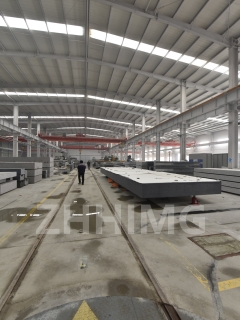Precision granite pedestal bases are essential products for industries that rely on accurate measurements and precision tools. They are designed to provide a stable, flat surface for mounting various instruments and machines. However, even the most high-quality precision granite pedestal base can have some defects. In this article, we will discuss some of the defects that are commonly seen in precision granite pedestal bases.
1. Surface Imperfections
One of the major defects that is prevalent in precision granite pedestal bases is surface imperfections. These can include chips, scratches, and dings on the surface of the granite. These imperfections may not always be visible to the naked eye, so it is important to thoroughly inspect the surface using a magnifying glass or microscope.
2. Unevenness in Surface
Another common defect in precision granite pedestal bases is the unevenness in the surface. Unevenness may be caused by manufacturing defects or damage during shipping and handling. A slight slope or curvature in the surface of the granite could significantly affect the accuracy of measurements, causing errors in the results.
3. Inconsistency in Dimensions
Another defect that may be seen in precision granite pedestal bases is the inconsistency in dimensions. The base should have uniform and accurate measurements to ensure it fits perfectly with other components of the measurement setup. Inconsistency in dimensions could cause instability and vibrations, leading to inaccurate measurements.
4. Loose Mounting Hardware
Precision granite pedestal bases are designed to be sturdy and long-lasting, but over time, mounting hardware may loosen. Loose mounting hardware is a defect that may lead to instability, which can cause equipment or instruments to fall off the granite base or produce inaccurate measurements.
5. Cracks and Fissures
Another defect that may be seen in precision granite pedestal bases is cracks and fissures. These defects may occur naturally during the production process or could arise from transport and handling. Severe cracks and fissures can render the granite base unusable and compromise its structural integrity.
Conclusion
Precision granite pedestal bases are important tools that ensure accurate measurements and reliable results. However, certain defects can compromise their functionality and accuracy. Manufacturers should strive to ensure that each pedestal base is manufactured with utmost care and is free of defects that could cause inaccuracies in measurements. Regular maintenance and inspection can help to identify and correct defects as they arise, which will ensure the continued functionality of the equipment and instruments that rely on precision granite pedestal bases. By fixing defects promptly and taking proactive steps to prevent them in the future, businesses can ensure they get the most out of their precision granite pedestal bases.
Post time: Jan-23-2024

